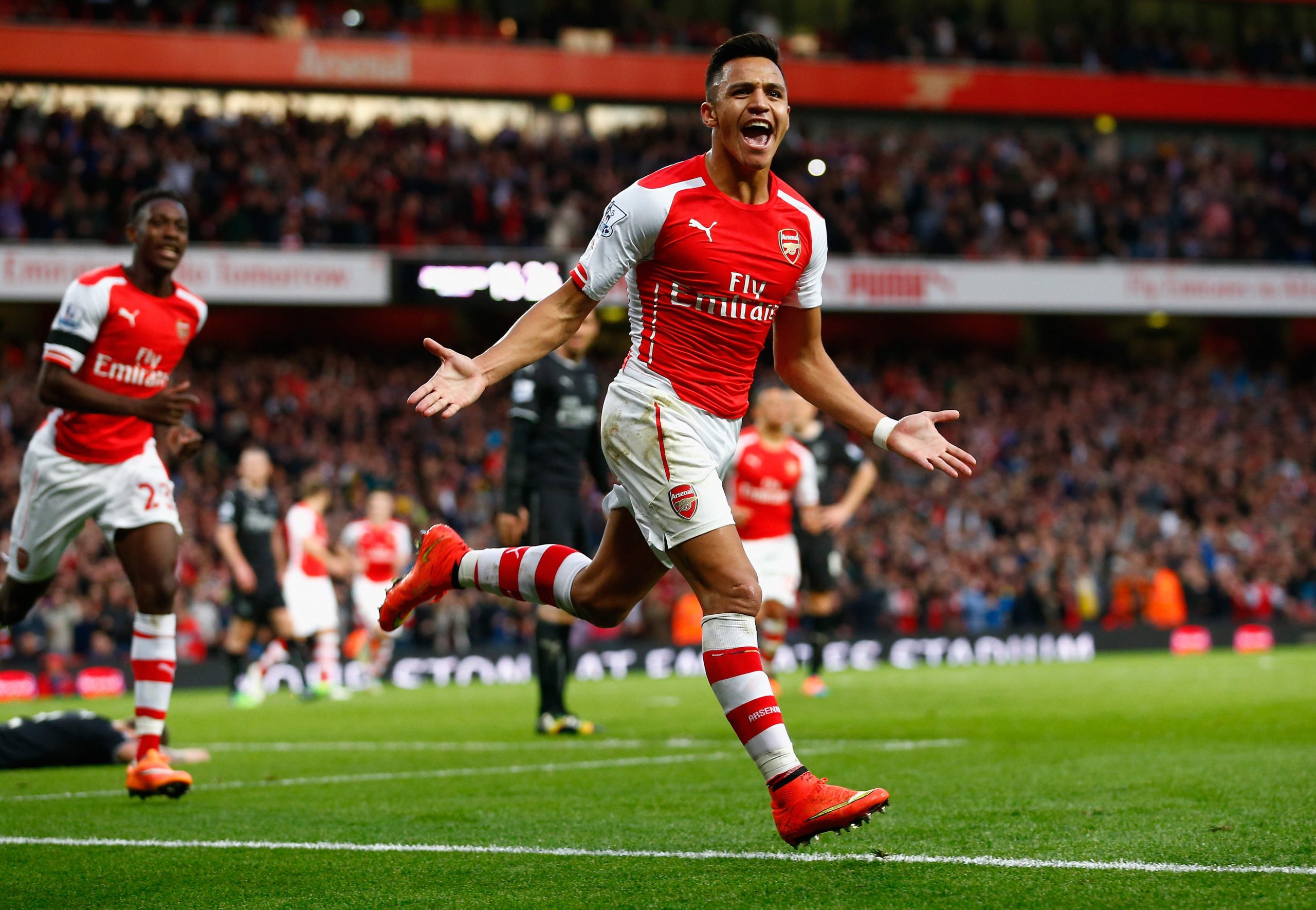
There were fireworks, cars tooted their horns and flatbed trucks bore fans bedecked in flags. For the most part, though, Chileans reacted to beating Argentina in the Copa América on 4 July – after Alexis Sánchez scored the decisive penalty in a shootout – by wandering the streets looking dazed. If their celebrations lacked polish, that is hardly surprising: 99 years after Chile took part in the first Copa, it was their first success.
Players were bussed straight from the stadium to a reception with the president, Michelle Bachelet. Not that it did her much good. Thirty-six hours later, a survey produced by the pollsters GfK Adimark showed support for Bachelet had slipped to 27 per cent, the lowest rating in her two terms as president. Sporting success, the theory goes, engenders a wave of patriotism that favours the incumbent. Not here. There was plenty of patriotism – after getting bored with the endless repetitions of “Chi-chi-chi, le-le-le, viva Chile!” the only song home fans could think finally to sing was their national anthem. And yet the mood throughout the tournament was one of grumbling discontent.
On important occasions, Chileans usually gather at the Plaza Italia in the centre of Santiago. Two hours after their quarter-final victory over Uruguay, ten days before the final, it was deserted save for squads of carabinieri tramping over discarded inflatables. The mustard tang of tear gas was unmistakable. The pavements gleamed with puddles from water cannon – oddly poignant, as Santiago endures its worst drought in half a century. What was most striking was that nobody seemed surprised. Fans who carried on drinking in Bellavista, five minutes’ walk away, simply shrugged.
Two days before the start of the tournament, on 9 June, 200,000 lecturers, professors and students marched through Santiago demanding Bachelet reconsider reforms that would make university education free for 60 per cent of the poorest students, something they believe does not go far enough to change a system instituted under Augusto Pinochet. The police responded with tear gas and water cannon, disturbing not merely a peaceful demonstration but also passers-by on some of the city’s busiest shopping streets. Jorge Sampaoli, Chile’s combative Argentinian coach, expressed some support for the protesters but urged them not to interfere with preparations for the tournament.
This, after all, was Chile’s best chance at ending that 99-year wait for a trophy. They would be playing at home, and had a fine generation of players who were generally fit, as well as an inspirational coach in Sampaoli. More than that, they had an identity. For decades Chile had been regarded by the South American powers as a side that might have a couple of good players but would self-destruct under pressure. Since 2007 and the appointment as coach of the Argentinian Marcelo Bielsa, a visionary and eccentric theorist, they have developed an idiosyncratic, direct attacking style relatively common at club level, but hard to achieve for international squads that rarely train together.
It’s not easy to disentangle football from politics, as Chile’s history makes clear. Few stadiums feel quite so representative of their nation as the Estadio Nacional. After Pinochet’s coup against Salvador Allende in 1973, it was used as a prison camp and torture centre. It was there, in November that year, that Chile kicked off a World Cup qualifying play-off against nobody after the USSR refused to play in a stadium where leftists had been murdered a few weeks earlier. A block of benches behind one of the goals is left perpetually empty as a memorial to the victims.
More specifically, there was the incident after Chile’s 3-3 draw with Mexico in the group stage when Arturo Vidal, their best player up to that point, crashed his Ferrari on the way home from a casino. “Handcuff me and you’re screwing all of Chile,” he told the officer who arrested him. Sampaoli in the past has dropped players for oversleeping; here he decided to let justice take its course through the courts. Vidal kept playing. That was evidence of a new, more pragmatic Chile – something taken to extremes when the defender Gonzalo Jara provoked the Uruguay forward Edinson Cavani into getting sent off by jabbing a finger between his buttocks.
Heightening tensions further is the smog that, without rain to wash it away, has settled on Santiago. Farcically, the government has tried to blame demonstrators, saying that smoke from burning barricades has exacerbated the problem. Frequent deployment of tear gas presumably doesn’t help either.
As it was, in losing their status as romantics who appealed to casual observers, Chile have their first trophy. Sampaoli and his players emerge with their reputation enhanced, and in the fevered waving of 40,000 Chilean flags at el Nacional, there was no mistaking the patriotic glee.
A longer version of this article appears at: newstatesman.com





